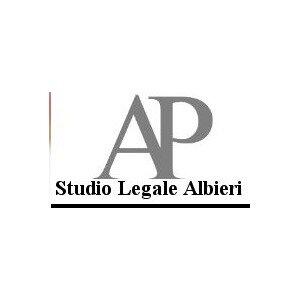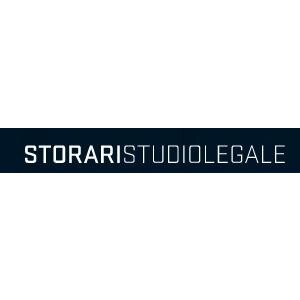Best Debt Capital Markets Lawyers in Verona
Share your needs with us, get contacted by law firms.
Free. Takes 2 min.
List of the best lawyers in Verona, Italy
About Debt Capital Markets Law in Verona, Italy
Debt Capital Markets (DCM) refer to the area of financial markets where companies, governments, and other entities raise funds through the issuance of debt instruments such as bonds, notes, and debentures. In Verona, Italy, DCM activity is robust owing to the city's dynamic economy and its position within the wealthy Veneto region. Legal practice in DCM in Verona involves navigating a mix of Italian and European Union regulations, assisting clients with structuring, negotiating, and executing debt transactions. These may include corporate bonds, securitisation transactions, structured finance, and local government debt issuance. The legal framework aims to ensure transparency, protect investors, and uphold the stability of financial markets.
Why You May Need a Lawyer
Many situations can prompt the need for a specialized DCM lawyer in Verona. Common scenarios include issuing or investing in corporate bonds, refinancing existing debt, undertaking complex securitisation deals, or ensuring compliance with the local and EU regulatory frameworks. Lawyers can assist in drafting and reviewing offering documents, regulatory filings, due diligence, negotiations with investors, and ongoing compliance. Someone unfamiliar with these markets may struggle with the depth and complexity of related legal requirements, the high value of transactions, and the potential risks involved. A lawyer's guidance helps mitigate risk, streamline transactions, and avoid hefty penalties for non-compliance.
Local Laws Overview
Debt Capital Markets in Verona are governed by a combination of Italian national law and European Union legislation. Key regulatory areas include the Italian Civil Code, laws enacted by the Italian Ministry of Economy and Finance, and rules set by CONSOB (the financial markets regulator) and the Bank of Italy. EU legislation such as MiFID II and the Prospectus Regulation also apply, impacting disclosure obligations and investor protections. Issuance of debt securities in Verona often requires preparing a prospectus, securing necessary approvals, and adhering to market conduct rules. Local law firms also address tax implications, anti-money laundering regulations, and rules for private versus public offerings. Staying compliant with both Italian and EU frameworks is critical for anyone participating in Verona’s DCM sector.
Frequently Asked Questions
What is the Debt Capital Market?
Debt Capital Markets refer to the venue where entities raise capital through the sale of debt instruments like bonds and notes rather than through issuing equity shares.
Who regulates Debt Capital Markets in Verona?
CONSOB (Commissione Nazionale per le Società e la Borsa) is Italy’s main financial markets regulator, supported by the Bank of Italy and overarching European Union regulatory bodies.
Can a foreign company issue bonds in Verona?
Yes, foreign issuers can access the Italian debt capital market, but must comply with both Italian and EU disclosure, listing, and regulatory requirements.
Is a prospectus always required for debt issuance?
A prospectus is generally required for public offerings, but may not be necessary for private placements or offers limited to certain investor categories, depending on the amount and nature of the offer.
What are the most common types of debt instruments in Verona?
The most common instruments include corporate bonds, government bonds, commercial paper, and structured notes.
How long does it take to issue a bond?
The timeline depends on the complexity of the transaction and regulatory reviews. Straightforward issues can take a few weeks, while complex or cross-border deals may take several months.
What are the tax considerations for debt instruments in Italy?
Interest paid on certain debt instruments may be subject to withholding tax, but exemptions and treaty benefits often apply. The specific tax treatment depends on the type of investor and the legal structure.
What risks are involved in DCM transactions?
Risks include market risk, credit risk, legal and compliance risks, and penalties for breaching securities regulations. Legal guidance helps in identifying and managing these risks.
How do Italian laws treat securitisation?
Italy has detailed laws on securitisation transactions, which allow for the pooling and repackaging of assets. Lawyers ensure compliance with regulatory, tax, and disclosure requirements.
Do I need a lawyer for a private debt placement?
Yes, even private placements can involve complex legal and regulatory issues. Involving a lawyer prevents costly mistakes and ensures the transaction is legally sound.
Additional Resources
If you need further information or support regarding Debt Capital Markets in Verona, consider the following resources:
- CONSOB (Commissione Nazionale per le Società e la Borsa) for regulatory guidance and investor protection - Bank of Italy for monetary policy and supervision of financial institutions - Italian Ministry of Economy and Finance for official guidance on debt issuance - Local Verona Chamber of Commerce for business-related support - Qualified local law firms specializing in financial regulation and capital markets - Trade associations such as the Italian Banking Association (ABI) for industry insights
Next Steps
If you are considering a Debt Capital Markets transaction in Verona, start by gathering all relevant documents and defining your goals. Seek recommendations for reputable law firms or practitioners experienced in this field. Arrange a consultation to discuss your plans, ask about their experience with similar transactions, and clarify the costs involved. Ensure any legal adviser you choose is registered and qualified to practice in Italy. Staying proactive and informed at every step is crucial to achieving a smooth, compliant, and successful outcome in Verona’s Debt Capital Markets.
Lawzana helps you find the best lawyers and law firms in Verona through a curated and pre-screened list of qualified legal professionals. Our platform offers rankings and detailed profiles of attorneys and law firms, allowing you to compare based on practice areas, including Debt Capital Markets, experience, and client feedback.
Each profile includes a description of the firm's areas of practice, client reviews, team members and partners, year of establishment, spoken languages, office locations, contact information, social media presence, and any published articles or resources. Most firms on our platform speak English and are experienced in both local and international legal matters.
Get a quote from top-rated law firms in Verona, Italy — quickly, securely, and without unnecessary hassle.
Disclaimer:
The information provided on this page is for general informational purposes only and does not constitute legal advice. While we strive to ensure the accuracy and relevance of the content, legal information may change over time, and interpretations of the law can vary. You should always consult with a qualified legal professional for advice specific to your situation.
We disclaim all liability for actions taken or not taken based on the content of this page. If you believe any information is incorrect or outdated, please contact us, and we will review and update it where appropriate.










